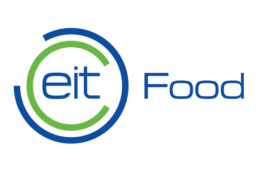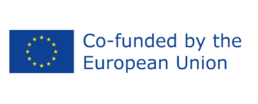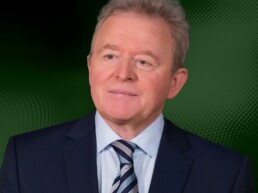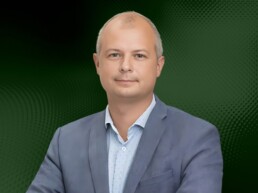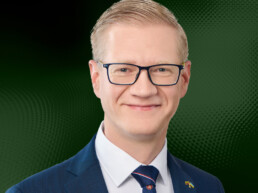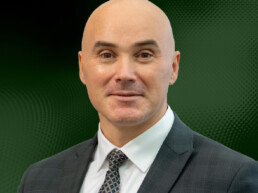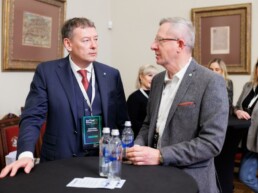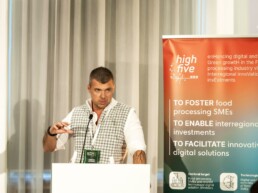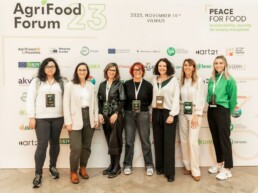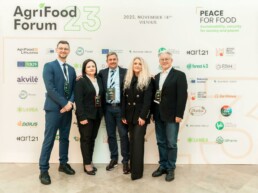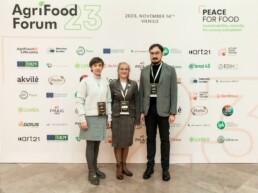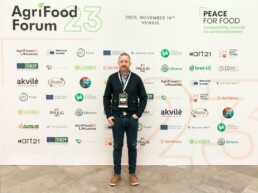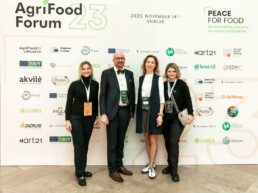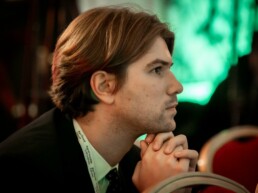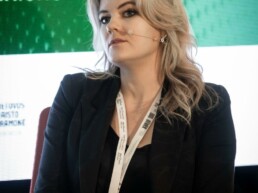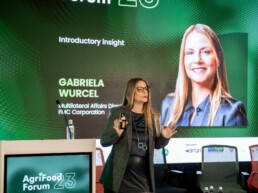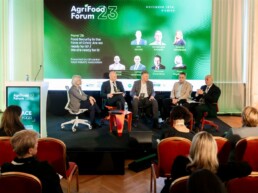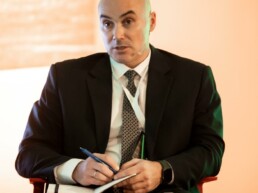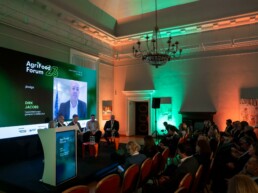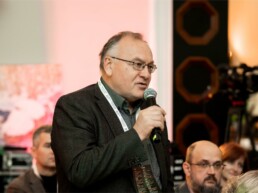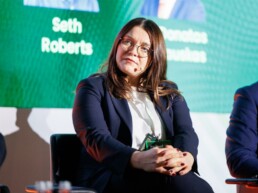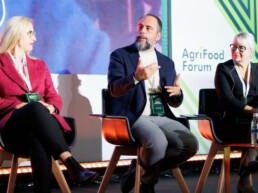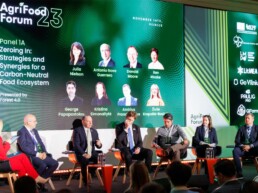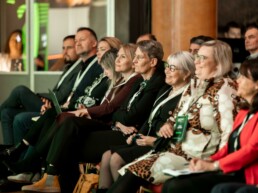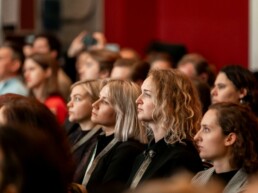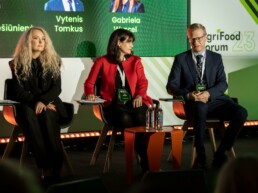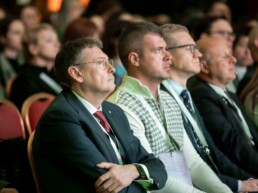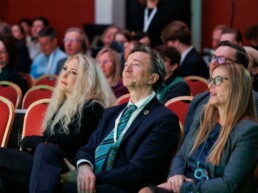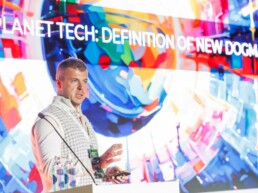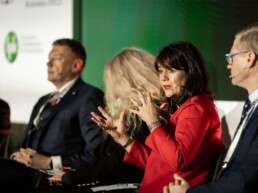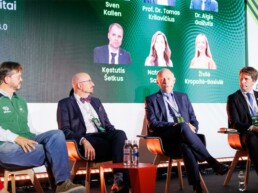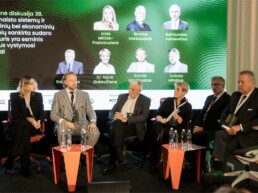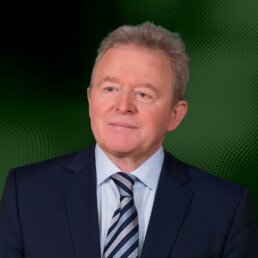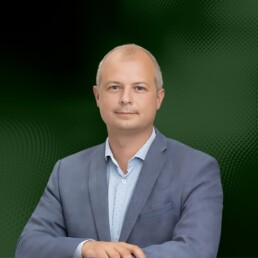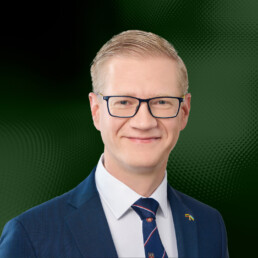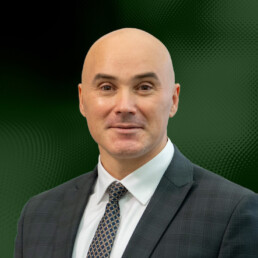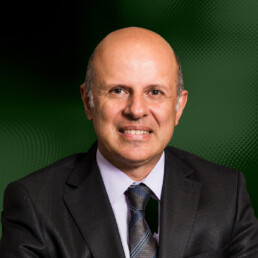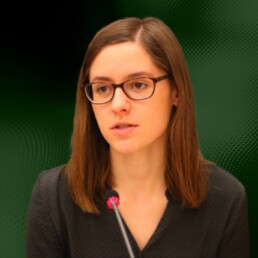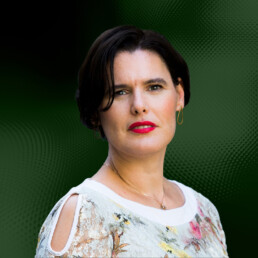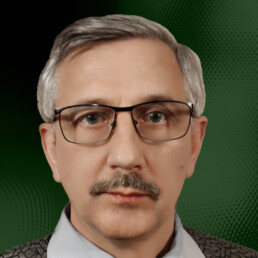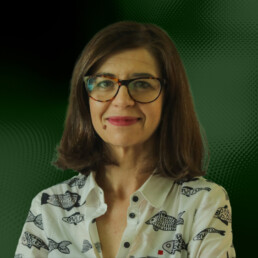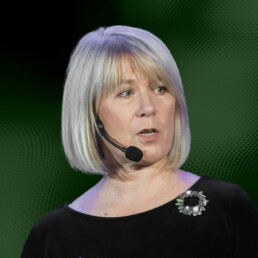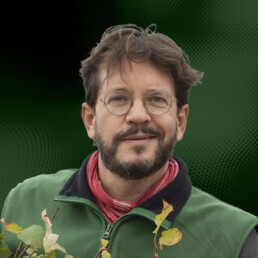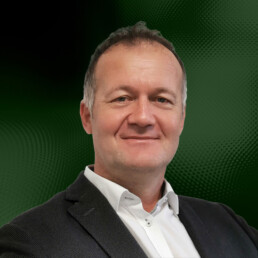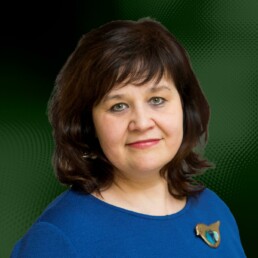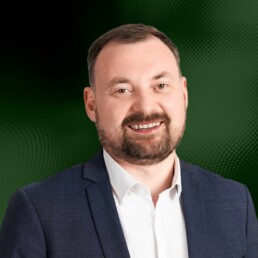Context of the Peace for Food Initiative
The current state of global affairs could be defined as a multi-layered crisis that is creating a shock to food demand and supply. Climate change, the pandemic and conflicts have significantly overloaded food systems and created one of the worst food crises in history. It has become urgent to move from discussion to action if global food systems are to feed the world, sustain the environment, and enable livelihoods across the food supply chain. Russia’s invasion of Ukraine has already severely disrupted global food markets, causing negative consequences for global grain supplies in the short term. Disrupting natural gas and fertilizer markets, as well as the production and spread of agricultural technology, will also have negative impacts on producers in the medium- to long-term. In this context, the theme of Building Sustainable Agriculture and Food Systems in a Changing Environment: Shared Challenges, Transformative Solutions, was selected for the OECD Meeting of Agriculture Ministers (Ministerial) on November 2022.
Objectives of the Peace for Food Initiative
The Peace for Food Initiative aims to bring international attention and global stakeholders together to highlight the current situation in global food markets. The initiative will enable businesses to proactively contribute to the OECD work on agriculture and will highlight the business commitment to reaching global objectives, including agriculture sustainability and innovation. Peace for Food has three main goals:
- Inform the OECD and policymakers on the current challenges businesses face in wake of recent food price hikes, particularly in developing countries, what challenges it poses for businesses in developed countries, and showcase how businesses tackle these challenges.
- Discuss policy actions to calm agricultural markets in the short term, and identify policy recommendations for making our food systems more resilient and sustainable in the long term, boosting agriculture productivity, innovation and how it can contribute to evidence-based policy-making.
- Explore the role of international collaboration, in particular through OECD and G20 initiatives can play in stabilizing global food markets in times of price inflation.
We expect the upcoming AgriFood Forum to yield multiple positive outcomes:
Collaborative Problem-Solving
It will serve as a platform for diverse stakeholders from the agrifood industry and related fields to engage in discussions around the intricate challenges facing the sector. To address them, participants will collaboratively work towards identifying strategic solutions and long-term commitments.
Policy Recommendations
The forum will enable experts to produce a comprehensive policy document containing recommendations directed towards key policy-making institutions like Business at OECD and the European Commission. This resource will provide actionable insights that can facilitate informed decision-making.
Public Awareness and Dialogue
The forum endeavors to raise public awareness and facilitate dialogue on the significance of sustainable and secure food systems in our society. It is our hope that this event will foster collective responsibility towards ensuring the future-proofing of our food systems.

Speakers
Kristina Simonaitytė
Dr. Rasa Melnikienė
Kristina Šermukšnytė-Alešiūnienė
Laura Liepiņa
Andrius Pranckevičius
Simon Maas
Dr. Nijolė Zinkevičienė
Mindaugas Snarskis
Aurimas Guščius
Dr. Donatas Murauskas
Darius Kniūkšta
Prof. Dr. Vilma Atkočiūnienė
*The list of speakers will be updated.

Agenda
08:00 - 09:00 Registration & B2B matchmaking breakfast
09:00 - 09:30 Opening remarks
Viktorija Čmilytė-Nielsen | Speaker of the Seimas of the Republic of Lithuania
Janusz Wojciechowski | European Commissioner for Agriculture and Rural Development
Simonas Gentvilas | Minister of Environment of the Republic of Lithuania
Kristina Šermukšnytė-Alešiūnienė | CEO of AgriFood Lithuania DIH, European Cluster Manager of the Year 2022
Metin Akman | Business at OECD Food and Agriculture Committee Chair
09:30 - 10:45 High level opening panel – From Seed to Society: Fostering Peace Through Sustainable Agrifood Solutions
Today, in a world beset with rapid climatic changes, resource scarcity, and geopolitical tensions, the role of agrifood systems in ensuring global peace and security has never been more critical. The seamless journey from seed to society is pivotal in the creation of food security, equitable resource distribution, and thereby, the promotion of peace. This panel seeks to bring together experts, leaders, and stakeholders from the agrifood sector to explore how sustainable practices can contribute to global stability.
Objectives:
- Examine the link between food security, sustainable agriculture, and peace.
- Explore innovative solutions and practices in sustainable agrifood systems.
- Delve into the role of global partnerships and collaborations.
- Address challenges and barriers in implementing sustainable agrifood solutions.
- Discuss the future of agrifood solutions in the face of evolving global challenges.
Discussion Topics:
- The Nexus of Food, Peace, and Security: Exploring the direct and indirect ways in which food security plays a role in global stability.
- Innovations in Agrifood: Unpacking the latest in sustainable farming practices, agritech solutions, and supply chain optimization.
- Collaboration Across Borders: The importance of regional and global partnerships in sharing knowledge, resources, and best practices.
- The Challenges Ahead: Addressing the barriers, both logistical and societal, that stand in the way of large-scale sustainable agrifood adoption.
- Vision 2040: Forecasting the future of agrifood systems in the face of evolving challenges such as climate change, geopolitical tensions, and urbanization.
Introductory insight: Dr. Andy Zynga | CEO at EIT Food
Vidmantas Janulevičius | President of the Lithuanian Confederation of Industrialists
Dr. Andy Zynga | CEO at EIT Food
Kristina Šermukšnytė-Alešiūnienė | CEO of AgriFood Lithuania DIH, European Cluster Manager of the Year 2022
Julia Nielson | Deputy Director, Trade and Agriculture Directorate, OECD
Vytenis Tomkus | Vice-Minister at Ministry of Agriculture of the Republic of Lithuania
Moderated by Gabriela Wurcel
10:45 - 11:10 PlanetTech: Definition of New Dogma
Augustas Alešiūnas | AgTech Business Angel & Owner of ART21
11:10 - 11:35 Coffee break
I Hall A
II Hall B
III Hall C
11:35 - 12:50 Panel 1A – Zeroing In: Strategies and Synergies for a Carbon-Neutral Food Ecosystem
Presented by GFarm for Life
As global environmental thresholds approach critical levels, the agricultural and food sector assumes a crucial role in the urgent pursuit of solutions. The endeavor to establish a carbon-neutral food ecosystem involves the shared aspiration to integrate principles of sustainability with the objective of ensuring food security. Panel brings together prominent scholars and experts from around the world to explore the various approaches, partnerships, and strategies that are reshaping the food industry towards a more environmentally sustainable trajectory.
Objectives:
- Examine the intricate web of carbon footprints across the agrifood value chain.
- Discuss innovative strategies that champion carbon neutrality from farm to fork.
- Highlight synergistic collaborations across industries, sectors, and nations.
- Unpack the challenges and barriers obstructing a carbon-neutral agrifood transition.
- Envision the future landscape of a fully sustainable global food ecosystem.
Introductory insight: Julia Nielson | Deputy Director, Trade and Agriculture Directorate, OECD
Antonio Novo Guerrero | President of the European Clusters Alliance
Donald Moore | Executive Director at Global Dairy Platform
Ben Rivoire | Sustainability & Crop Value Chain Manager, International Seed Federation
George Papapostolou | Project Manager at Foodscale Hub
Kristina Simonaitytė | Advisor to the Minister of Agriculture at Ministry of Agriculture of the Republic of Lithuania
Andrius Pranckevičius | Deputy Chairman at Linas Agro Group, CEO at AB Kauno Grūdai, Chairman at PF Kekava
Moderated by Živilė Kropaitė-Basiulė
12:50 - 14:15 Lunch break
14:15 - 15:30 Panel 2A. Novel Nourishment: Redefining Food in the Lab Era
As technology and biology converge, the definition of ‘food’ is undergoing a radical transformation. Panel delves deep into the realm of lab-grown foods, from meat to dairy, questioning their place in our diets, cultures, and ecosystems. Bringing together experts, critics, and consumers, this panel aims to address the controversies, possibilities, and concerns attached to these novel food innovations.
Objectives:
- To decipher the science and technology behind the production of lab-made foods.
- Understand the societal, cultural, and individual implications of adopting these novel food sources.
- Evaluate the nutritional integrity of lab-grown foods compared to their traditional counterparts.
- Navigate the regulatory landscape and assess the safety protocols associated with these innovations.
Introductory insight: Marja-Liisa Meurice | Director of EIT Food CLC North-East
Simon Maas | Chairman of the Smart Sensors 4 Agri-food S3-partnership (European Cluster Partnership of the Year 2022)
Vytautas Abukauskas | Vice-Minister at Ministry of Agriculture of the Republic of Lithuania
Ieva Valeškaitė | Vice-Minister of the Economy and Innovation of the Republic of Lithuania
Mirva Lampinen | VTT Co-Creation Manager
Seth Roberts | The Good Food Institute Europe Policy Manager
Moderated by Dr. Donatas Murauskas | Attorney at „Ellex Valiunas“ / Assoc. Prof. at Vilnius University Law Faculty
15:30 - 16:45 Panel discussion 3A Green Pockets: Funding the Next Agrifood Revolution
With the global population projected to near 10 billion by 2050, the agrifood sector is on the brink of its next big revolution. But how do we fund it? Panel explores groundbreaking financial strategies, from impact investing to innovation competitions, that aim to infuse capital into promising agrifood projects and startups, catalyzing transformative change.
Objectives:
- Illuminate the significance of strategic funding in realizing the full potential of agrifood innovations.
- Explore diverse financial mechanisms tailored to the unique needs and challenges of the agrifood sector.
- Highlight the role of global collaborations, institutions, and private entities in shaping the future of agrifood financing.
- Foster a dialogue on ensuring equitable access to funds, especially for grassroots innovations and marginalized communities.
Introductory insight: Grigoris Chatzikostas | Vice President of Business Development at FoodScale Hub
Marja-Liisa Meurice | Director of EIT Food CLC North-East
Virginija Kargytė | Deputy Director for International Affairs at Bioeconomy Research Institute
Grigoris Chatzikostas | Vice President of Business Development at FoodScale Hub
Laura Liepina | Policy Assistant, Unit B2 – Bioeconomy & Food Systems, Directorate-General for Research and Innovation, European Commission
Jekaterina Kalinienė | Innovation Agency Head of Biotech Lab
Giedrius Surplys | Member of of the Seimas of the Republic of Lithuania
Moderated by Živilė Kropaitė-Basiulė
16:45 - 17:50 Panel 4A – Forests at the Forefront: Data-Driven Climate Resilience
Presented by Forest 4.0
Forests, covering approximately 31% of our planet’s land area, not only sustain countless species but also anchor the global climate system. These “lungs of the Earth” sequester vast amounts of carbon dioxide and play a pivotal role in maintaining the planet’s ecological balance. As climate challenges mount, understanding and protecting these vital ecosystems becomes increasingly crucial. The “Forests at the Forefront” panel delves deep into the symbiosis between forests and the global climate, underscoring the game-changing role of data. By utilizing cutting-edge technology and data analysis, global communities are revolutionizing forest management, conservation, and restoration practices.
Objectives:
- Illuminate the multifaceted role of forests in global climate regulation.
- Discuss innovative data collection and analysis methodologies in forestry.
- Showcase successful data-driven interventions that have bolstered forestry sustainability
- Explore global collaborations in forest data, fostering a unified approach to tackle climate challenges.
Introductory insight: Sven Kallen | Founder & Secretary at Life Terra Foundation & General Director Volterra Ecosystems
Prof. Dr. Tomas Krilavičius | Dean of Faculty of Informatics Vytautas Magnus University
Dr. Algis Gaižutis | Chairman of the Board Forest and Land Owners Association of Lithuania
Kęstutis Šetkus | Vice-Minister at Ministry of Environment of the Republic of Lithuania
Sven Kallen | Founder & Secretary at Life Terra Foundation & General Director Volterra Ecosystems
Ben Rivoire | Sustainability & Crop Value Chain Manager, International Seed Federation
Moderated by Živilė Kropaitė-Basiulė
17:50 - 18:00 Concluding session
11:30 - 11:40 Opening session
Daiva Jakaitė | Head of European Parliament Liaison Office in Lithuania
11:40 - 11:55 Keynote speech: Future of EU Agriculture: Challenges to Europe & Lithuania
Juozas Olekas | Member of the European Parliament (Socialists and Democrats, Lithuania)
11:55 - 12:10 Keynote speech: Transformations of Agricultural Sector: how to Make Lithuanian Rural Areas Sustainable
Dr. Rasa Melnikienė | Head of the Institute of Economics and Rural Development, Lithuanian Centre for Social Sciences
12:10 - 12:30 Q&A session
Moderated by Arūnas Milašius | Editor at Delfi.lt Agro
12:30 - 12:45 Global food security cannot be taken for granted
Marlene Mortler | Member of the European Parliament (European People’s Party, Germany)
12:45 - 13:00 Q&A session
Moderated by Arūnas Milašius | Editor at Delfi.lt Agro
13:00 - 14:15 Lunch break
14:15 - 15:30 Panel 2B. Food Security in the Face of Crisis: Are we ready for it? / We are ready for it!
Presented by Lithuanian Food Industry Association
Food producers, like society as a whole, have faced complex challenges in recent years: the COVID 19 pandemic, the effects of climate change, the war in Ukraine started by Russia, and now the conflict in the Middle East. Whatever the crises in Europe or Lithuania, the food industry will have to deliver on its core mission – to provide people with safe, quality food. The main question of this panel discussion is whether we, i.e. the Lithuanian food industry, are sufficiently prepared for a crisis situation? Should food industry be considered an integral part of an effective national defence system? National implementation and EU-wide coordination? Is food industry essential in view of coordinated efforts to reach high levels of preparedness? Are we identifying and learning lessons from experience in the war zones?
Objectives:
- To review the context in which food industry companies are currently operating – throughout European Union, and the world.
- To assess the complexity of supply chains and the bottlenecks that may arise in the face of crises.
- To discuss the opportunities and potential of the food industry for effective preparedness in the face of challenges and uncertainty to secure food supply.
- To explore with food producers, Government institutions representatives, and crisis experts, what are the next steps towards a more coordinated and integral approach in national defence from a food security perspective.
Introductory insight: Dirk Jacobs | Director General of FoodDrinkEurope
Mindaugas Snarskis | Chairman of the Board at Lithuanian Food Industry Association; CEO at Vikonda Group
Kristina Mineikienė | Agricultural Attaché to Japan
Aurimas Guščius | Senior Advisor at the National Crisis Management Center at Office of the Government of the Republic of Lithuania
Tomas Godliauskas | Adviser to the President
Simonas Gurevičius | Director at Food Bank
Moderated by Rasa Bagdonienė | Partner at Market Smart
15:30 - 16:45 Panel 3B Harvesting Equity: Socio-Economic Dimensions of Agrifood Sustainability
The intersection of agrifood systems and socio-economic factors forms a nexus that’s pivotal for the future of sustainable development. Panel delves into the myriad socio-economic implications of agrifood sustainability, exploring how the quest for a more sustainable food system influences and is influenced by socio-economic dynamics. This panel brings together a diverse blend of experts, from agronomists to economists, to shed light on the challenges, opportunities, and intricate relationships between agrifood initiatives and socio-economic outcomes.
Objectives:
- Understand the multifaceted relationship between agrifood sustainability and socio-economic structures.
- Highlight the potential of sustainable agrifood systems in driving socio-economic advancements.
- Address the challenges and barriers faced by marginalized communities in accessing the benefits of sustainable agrifood initiatives.
- Discuss policy frameworks, incentives, and collaborations that can ensure a more equitable agrifood future.
Introductory insight: Aistė Miliūtė-Pranckuvienė | CEO at Birštonas Mineral Water
Bronius Markauskas | Mayor of Klaipėda District Municipality
Raimundas Juknevičius | Chairman at Lithuanian Farmers’ Union
Kazys Starkevičius | Chairman of the Economic Committee of the Seimas of the Republic of Lithuania
Dr. Nijolė Zinkevičienė | Vice-Rector for Research and Partnerships of Vilniaus kolegija/Higher Education Institution Vice-President of EURASHE (European Association of Institutions in Higher Education)
Aistė Miliūtė-Pranckuvienė | CEO at Birštonas Mineral Water
Karolis Sankauskas | Owner of “Projektavimo sprendimai”
Moderated by Arūnas Milašius | Editor at Delfi.lt Agro
16:45 - 17:50 Panel 4B. AgriTech Nexus: Harnessing Technology for a Food-Secure Future
Presented by EDIH.lt
The fusion of technology and agriculture heralds a transformative era in the agrifood sector. As the world grapples with challenges like population growth, climate change, and resource constraints, integrating advanced technologies into agrifood systems is not just innovative – it’s imperative. “AgriTech Nexus” offers a deep dive into the technological innovations shaping the future of food, from precision farming to blockchain in supply chains. By assembling thought leaders, innovators, and stakeholders, this panel seeks to spotlight the technologies driving efficiency, sustainability, and resilience in the agrifood sector.
Objectives:
- Examine the emerging technological trends in the agrifood landscape.
- Understand the impacts and potential of these technologies in enhancing productivity, sustainability, and traceability.
- Address the challenges, adoption barriers, and ethical considerations surrounding agritech applications.
- Explore the collaborations, investments, and policies fueling the agritech revolution.
Introductory insight: Gabriela Wurcel | Multilateral Affairs Director, FMC Corporation
Daniel Copot | Director of AgriFood DIH (Slovenia)
Gabriela Wurcel | Multilateral Affairs Director, FMC Corporation
Prof. Dr. Vilma Atkočiūnienė | Professor at the Department of Business and Rural Development Management of the Faculty of Bioeconomy Development at VMU Agriculture Academy.
Assoc. Prof. Eglė Vaičiukynaitė | KTU SEB Assoc. Professor of Practice, Co-founder & CEO @Neuromarketing & AI Lab
Moderated by Kristina Šermukšnytė-Alešiūnienė
17:50 - 18:00 Concluding session MAIN hall A
14:15 - 14:30 Welcome words for the afternoon session
Introduction about the HIGHFIVE project
Markus Ojala | Project manager/SeAMK
14:30 - 14:45 Twin transition: challenges and opportunities for food processing SMEs
The “twin transition” underscores the need to navigate both digital transformation and sustainability initiatives concurrently, as these two factors are increasingly interconnected and essential for long-term success and competitiveness in the food processing sector. The HIGHFIVE project sets out to inspire and enable food processing SMEs to embrace both the challenges and opportunities of digital solutions to become more sustainable.
Veerle De Graef | Programme manager/Flanders’ FOOD, coordinator HIGHFIVE, established office SS4AF
14:45 - 15:15 Computer vision, process monitoring and data modelling for resources optimalisation and waste reduction
A concrete example of how sensors, computer vision, artificial intelligence and advanced process control can effectively reduce energy and water consumption in food processing companies.
David Verstraeten | Technical Director/Yazzoom (BE), partner in HighFive
Tim Van Meer | „Pomuni“
15:15 - 15:45 Role of EDIHs in helping SMEs in the Twin Transition – case Vilnius
How EDIH (European Digital Innovation Hubs), and specifically AgriFood Lithuania, can help SMEs tackle the Twin Transition in the Agrifood sector.
Augustas Alešiūnas | AgTech Business Angel & Owner of ART21
15:45 - 16:15 Mobile Cobots 4 Flexible Food Production
How sensors’ equipped cobots can reduce monotonous and physically demanding work in a bakery characterized by a high level of flexibility and heterogeneous tasks.
Andries van der Werf | Van Wees Waalwijk
Mick Bremans | CFO, Mariën Bakkerij Produkten
Simon Maas | Chairman of the Smart Sensors 4 Agrifood S3-partnership (European Cluster Partnership of the Year 2022)
16:15 - 16:40 HIGHFIVE Open Calls and closing remarks
Simon Maas | Chairman of the Smart Sensors 4 Agrifood S3-partnership (European Cluster Partnership of the Year 2022)
Reflections from the first open call of HIGHFIVE project and outlook to the second open call.
16:40 - 16:45 Closing remarks
Markus Ojala | Project manager/SeAMK
IV Hall D
11:35 – 12:45 Unlocking Industry 5.0 in AgriFood: The Cluster as Facilitators
In this foundational session, we will embark on a journey to uncover the essence of “Industry 5.0” and its profound implications for the agri-food industry. As we set the stage, we’ll explore why clusters should take center stage as the guiding force in championing Industry 5.0 within this sector.
Objectives:
- Define the core principles and vision of Industry 5.0 and its departure from traditional industry paradigms.
- Discuss the significance of putting worker well-being at the core of the agri-food production process.
- Explore the societal contributions and sustainability goals that Industry 5.0 brings to the industry.
- Examine the pivotal role that clusters can play in facilitating the transition to a human-centric and resilient agri-food industry.
11:35 – 12:00 AgriFood evolution to Industry 5.0
Tautvydas Pipiras | Project Manager at Lithuanian Innovation Centre
12:00 – 12:45 Moderated discussion: Clusters as a guiding force in championing Industry 5.0 within Agrifood.
Armands Lejas-Krumins | Director at Food Products Quality Cluster
Christelle Domingos | Executive Director at InovCluster
Ana Felgueiras | European Programmes Coordinator at Galicia Food & Drinks Cluster (CLUSAGA)
Tautvydas Pipiras | Project Manager at Lithuanian Innovation Centre
Giedrius Bagušinskas | CEO at Lithuanian Food Exporters Association
Moderated by Gytis Junevičius | Project Manager at the Lithuanian Innovation Center
14:15 – 15:30 Building a Sustainable Future for AgriFood: Resilience through enabling the ecosystem
In this forward-looking session, we’ll set our sights on the sustainable future of the agri-food industry. Embrace the opportunity to discover how learning and applying new technologies and skills can fortify the industry’s resilience and secure its place in an ever-changing landscape, including the pivotal role of capital and investors in both early and growth phases.
Objectives:
- Discuss how innovation in practices, products and workforce development contributes to sustainability and competitiveness.
- Explore the role of capital and investors in supporting agri-food industry innovation, both in early-stage startups and during the growth phase.
- Examine the strategies, funding models, and collaborations that can drive industry resilience, ensuring the alignment of investment with sustainable practices.
14:15 – 14:40 Baltic Poultry – on the way to sustainable future
Saulius Petkevičius | Poultry Business Deputy Director at Vilniaus Paukštynas
14:40 – 15:05 Building European and worldwide leaders
Dylan Thuillier | Founding Partner at Nature4Growth
15:05 – 15:30 Future of Upskilling: Why Minecraft is better than school?
Darius Kniūkšta | Co-Founder at Edtech Lithuanian, Co-Founder and Chief Information Officer at Three Cube
15:45 – 16:35 Digital Technologies: Paving the Way for Industry 5.0 Transition
In this dynamic session, we’ll delve into the transformative power of digital technologies in driving the evolution towards Industry 5.0 within the agri-food sector. Get ready to understand how these innovations can be harnessed and the strategic preparations required to usher in the new era.
Objectives:
- Explore the pivotal role of digital technologies, including artificial intelligence and IoT, in advancing the agri-food industry.
- Examine how these digital tools can enhance productivity, sustainability, and efficiency across the value chain.
- Gain insights into staying competitive in an evolving digital landscape and leveraging technology for industry growth.
15:45 – 16:10 Leveraging technologies: Manufacturing digitalisation index
Povilas Bacevičius | Expert at Lithuanian Innovation Centre
16:10 – 16:35 Building a comprehensive picture for healthy fields: identifying nutrient deficiencies in individual plants to increase crop yields
Andrius Čiapas | Co-Founder at Smart Agrometer
Side events

C2Lab - Vilnius, Lithuania
Lithuania, 14 November 2023 - 15 November 2023
Are you preparing your next project on sustainable agri-food value chains? Or on skills and empowerment? Would you like to expand your network and meet new collaboration partners? Then, C2Lab is the right place for you!

Welcome to B2B matchmaking at the AgriFood Forum 2023
Lithuania, on November 14th, 2023
Enterprise Europe Network partners in Lithuania are organizing an on-site B2B matchmaking event during the AgriFood Forum 2023 in Vilnius, Lithuania, on November 14th, 2023.




